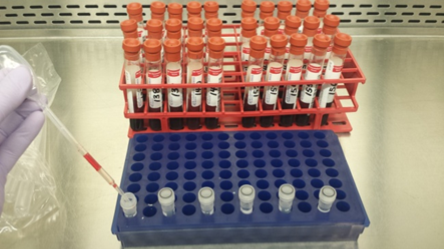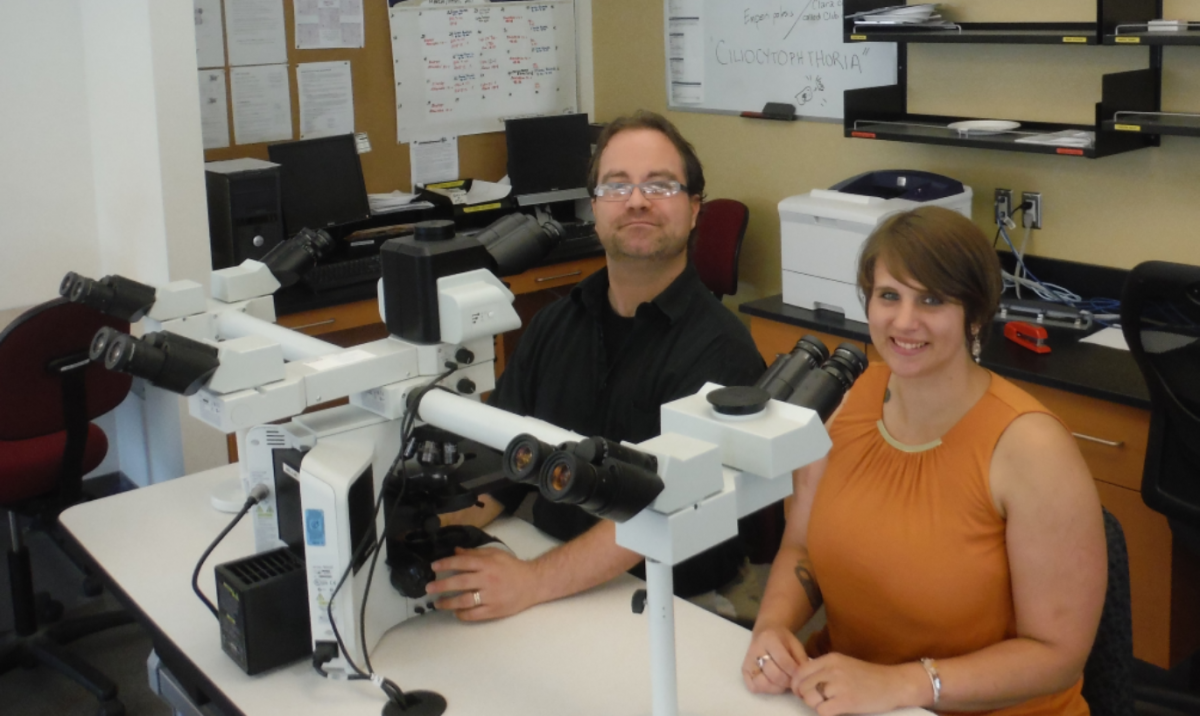AHL Newsletter, September 2015
For a pdf copy of AHL Newsletter, September 2015 click here
Pooling of samples for AHL testing
Joanna Sawicki
In order to control costs, samples are often pooled before testing in our microbiology labs. Individual samples can be tested should pools test positive for the agent or antibody in question. The AHL charges a cost-recovery fee for pooling of samples, but clients are welcome to pool before submitting. For details, see our new LabNote:
Briefly:
· Label all original tubes and pooling tubes in order to be able to go back and open positive pools for further testing.
· Use a new transfer pipette for each sample.
· Change gloves between cases.
· Submit to the lab ASAP.

Diagnostic dilemma!
Kris Ruotsalo
Question: What are the nucleated cells within the blood smear on the left?
|
|
|
Answer: Degenerate leukocytes!
The slide on the left was prepared from an EDTA sample that had spent 2 days in transit before reaching the AHL. The majority of the cells within the sample, and therefore within the smear, were degenerate, rendering both manual and automated leukocyte differentials, and total leukocyte count unreliable. However, as recommended, the submitting clinician had also included an air-dried, unstained blood smear (on the right) prepared at the time of blood collection. Using this well-prepared smear, we were able to provide an estimated total leukocyte count, an accurate 100 cell leukocyte differential count, an estimated total platelet count, and comment on the presence or absence of anemia.
This example serves as a reminder of the importance of always sending a well prepared, air-dried blood smear along with all EDTA blood samples, whenever a CBC is requested. This is particularly important if the sample is anticipated to spend a prolonged time in transit and during weather extremes (both hot and cold).
Job shadowing at the Animal Health Laboratory
Andrew Vince
It is rare that people are invited to see firsthand the detailed inner workings of the Pathology service at the Animal Health Laboratory. However, on May 28th, 2015, Dr. Andrew Vince invited OVC veterinary student Abby Finley to job shadow him through a full day as a diagnostic pathologist with the AHL. The day started with a brief tour through the pathology lab sections, followed by an hour observing the post-mortem dissection and sampling of a cat with subaortic stenosis. This was then followed by lunch and a discussion of the training procedures involved in becoming a veterinary pathologist. The afternoon was spent reviewing surgical pathology slides, across a breadth of different species, and discussing how we integrate histology and other ancillary tests.
Abby’s opportunity was provided through the 2015 Global Vets silent auction. Global Vets is a program at the Ontario Veterinary College that provides opportunities for veterinary students to gain experience in animal health care in developing countries. Founded in 1997, Global Vets was formed to promote international collaboration on agricultural development, animal health and welfare, and ecosystem health. The silent auction helps raise money to support second-year OVC students in traveling to various developing countries for 4-8 weeks as volunteers with ongoing veterinary-related projects aimed at improving the health and welfare of animals and people. Dr. Andrew Vince and the AHL are proud to be able to provide this opportunity for veterinary students and to help raise money for Global Vets.







